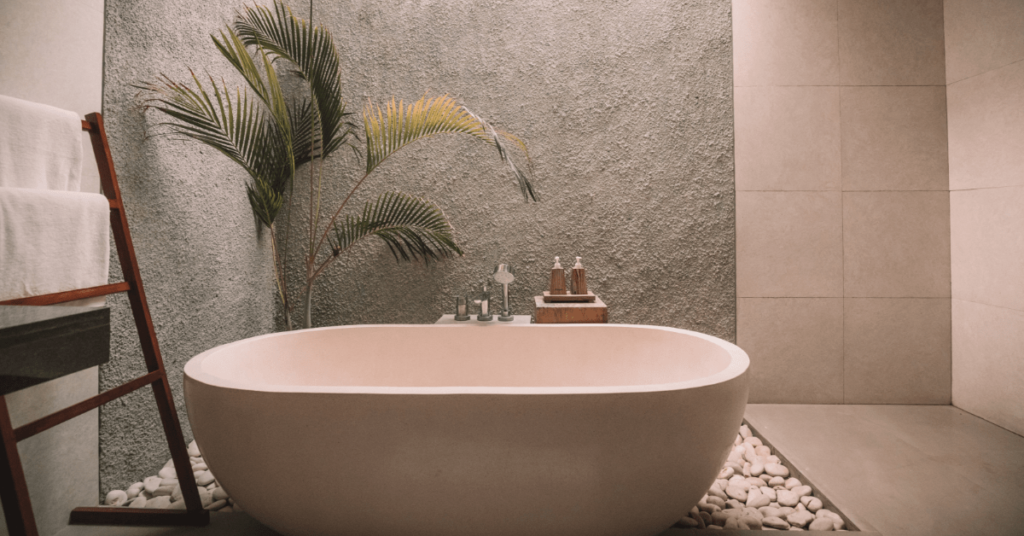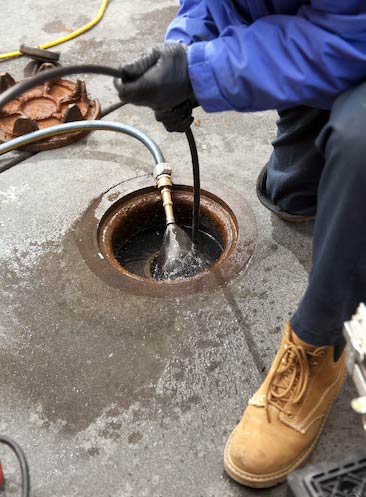Eco-Conscious Piping Options: Boosting Your Home's Sustainability
Eco-Conscious Piping Options: Boosting Your Home's Sustainability
Blog Article
What're your beliefs on Sustainable plumbing solutions for your home tips?

Introduction
In today's globe, lasting living is ending up being progressively crucial. One location where house owners can make a significant effect is through green plumbing services. By taking on ecologically mindful practices, houses can decrease their water and energy consumption while contributing to a much healthier planet.
Water-Efficient Components
Standard components frequently waste water unnecessarily. However, modern-day low-flow commodes, faucets, and showerheads are designed to lessen water usage without sacrificing performance. These fixtures can dramatically decrease home water usage, leading to lower water expenses and a reduced environmental footprint.
Greywater Equipments
Greywater refers to gently made use of water from sources such as showers, sinks, and cleaning devices. Rather than allowing this water go to waste, greywater systems recycle it for non-potable uses such as landscape watering and bathroom flushing. By carrying out a greywater system, home owners can save fresh water resources and reduce pressure on metropolitan wastewater therapy centers.
Rainwater Harvesting
Rain gathering includes gathering and storing rainwater for various functions, including watering, commode flushing, and laundry. Rainwater harvesting systems normally consist of a collection surface (such as a roofing system), gutters, downspouts, and storage tanks. By gathering rain, homeowners can lower their reliance on community water resources and save fresh water resources.
Solar Water Heaters
Standard hot water heater rely upon fossil fuels or electrical power to warmth water, contributing to carbon exhausts and energy intake. In contrast, solar water heaters use sunshine to warmth water, providing a renewable and eco-friendly option. By taking advantage of solar energy, property owners can lower their power expenses and minimize their carbon impact.
Environment-friendly Pipeline Materials
Conventional plumbing products such as copper and PVC can have adverse environmental influences during production and disposal. Nevertheless, there are lasting choices available, such as recycled steel, cross-linked polyethylene (PEX), and high-density polyethylene (HDPE). These green pipeline materials offer durability, longevity, and lowered ecological influence.
Energy-Efficient Appliances
Along with water-efficient fixtures, energy-efficient home appliances can further minimize a household's ecological footprint. High-efficiency washing machines and dish washers utilize much less water and energy per cycle, helping to save sources and lower energy costs. When shopping for home appliances, seek ENERGY STAR ® accredited versions for optimal efficiency.
Smart Water Administration Equipment
Breakthroughs in technology have made it easier than ever to keep track of and optimize water use in the home. Smart water administration systems use sensing units and data analytics to track water usage in real-time, recognize leakages, and give insights for conservation. By applying clever water administration solutions, homeowners can decrease waste and make the most of performance.
Expense Factors to consider
While eco-friendly plumbing choices might have greater ahead of time prices than traditional options, they commonly provide long-lasting savings with reduced water and energy costs. Additionally, numerous governments provide rewards such as refunds and tax obligation credits for green upgrades, aiding to counter preliminary costs.
Installation and Upkeep
Appropriate setup and regular upkeep are essential for guaranteeing the performance and long life of environmentally friendly pipes systems. It is very important to work with competent experts to set up and service these systems to prevent problems and take full advantage of performance. Regular maintenance tasks such as looking for leakages and cleaning up filters can additionally assist avoid problems and maximize performance.
Environmental Benefits
The environmental benefits of green plumbing are substantial. By conserving water and energy, house owners can decrease their carbon impact and minimize their impact on natural deposits. Additionally, eco-friendly pipes methods can help protect ecological communities and preserve biodiversity for future generations.
Health Advantages
Along with environmental advantages, environmentally friendly plumbing can additionally add to improved indoor air quality and health. By using non-toxic materials and lessening chemical direct exposure, homeowners can produce a healthier living setting on their own and their family members.
Government Incentives
Lots of federal governments supply monetary rewards to urge house owners to take on green pipes techniques. These motivations may consist of refunds, tax credit reports, and low-interest car loans for energy-efficient upgrades. By taking advantage of these programs, home owners can make eco-friendly enhancements a lot more economical and easily accessible.
Verdict
Finally, eco-friendly plumbing choices offer various advantages for home owners and the setting alike. By investing in water-efficient fixtures, greywater systems, rainwater harvesting, solar hot water heater, environment-friendly pipeline products, energy-efficient home appliances, wise water administration systems, and various other sustainable options, families can minimize their environmental footprint, reduced their utility bills, and add to a much healthier earth for future generations.
10 Greener Plumbing Solutions for a Sustainable Home
Install Water-Saving Fixtures
One of the most effective ways to conserve water is by installing water-saving fixtures. Low-flow toilets, aerated faucets, and adjustable showerheads are excellent choices. These fixtures reduce water consumption without compromising performance, allowing you to save both water and money.
Embrace Tankless Water Heaters
Say goodbye to energy-hungry traditional water heaters! Tankless water heaters are a greener alternative. Unlike their counterparts, these systems heat water on-demand, eliminating the need for a constantly heated reservoir. By only heating water when needed, tankless water heaters save energy and lower utility costs.
Opt for Greywater Recycling
Make the most of your water usage by recycling greywater. Greywater recycling systems collect and treat water from showers and laundry, making it suitable for non-potable uses like toilet flushing or watering plants. This reduces the strain on freshwater resources and minimizes water waste.
Consider Energy-Efficient Water Heaters
Upgrade to energy-efficient water heaters like heat pump water heaters or solar water heaters. Heat pumps utilize ambient air to heat water, while solar heaters use the sun's energy. Both options significantly reduce energy consumption and contribute to a greener home.
Invest in Leak Detection and Prevention
Undetected leaks can lead to significant water waste. Install smart water leak detection devices that monitor your water usage and promptly notify you of any leaks. By taking immediate action, you can prevent water waste and avoid potential damage to your home.
Insulate Your Pipes
Insulating your pipes is a simple yet effective way to improve energy efficiency. Properly insulated pipes minimize heat loss and reduce the risk of frozen pipes in colder climates. By conserving heat and preventing energy waste, you can save on energy bills while enjoying a greener plumbing system.
Harness the Power of Rainwater
Rainwater harvesting is a sustainable practice that can supplement your water needs. Collect rainwater in barrels or tanks and use it for tasks like watering your garden or flushing toilets. This reduces reliance on municipal water supplies and conserves precious freshwater resources.
Choose Eco-Friendly Plumbing Materials
When upgrading your plumbing system, opt for eco-friendly materials. Water-efficient fixtures made from recycled materials and piping materials like PEX (cross-linked polyethylene) promote sustainability. These choices not only conserve resources but also contribute to a greener planet.
Upgrade to Dual-Flush Toilets
Dual-flush toilets offer two flush options: a lower-volume flush for liquid waste and a higher-volume flush for solid waste. By using the appropriate flush setting, you can significantly reduce water consumption. Dual-flush toilets are an easy and efficient way to conserve water in your home.
https://www.croninplumbingandheating.com/post/10-greener-plumbing-solutions-for-a-sustainable-home

I found that content on Environmentally Sustainable Home Plumbing while browsing the internet. Do you know about someone else who is enthusiastic about the topic? Please feel free to share it. Thanks a lot for your time invested reading it.
Request An Estimate Report this page